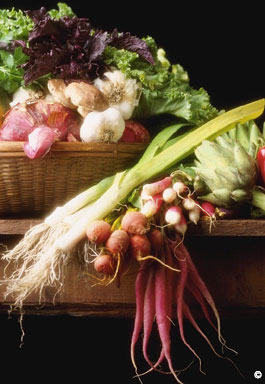 High temperatures cause problems with vegetable gardens. Plants transpire faster than normal in intense heat. If roots are not well established and healthy, leaves can scorch despite adequate moisture. Low humidity compounds problems and may promote spider mite problems.
High temperatures cause problems with vegetable gardens. Plants transpire faster than normal in intense heat. If roots are not well established and healthy, leaves can scorch despite adequate moisture. Low humidity compounds problems and may promote spider mite problems.
Heat and low humidity also affect blossom and pollen viability; bean blossoms abort and corn pollen shed diminishes. Fruit set on tomatoes, peppers and eggplants is significantly reduced when temperatures rise above 90 degrees F by midmorning.
Cool season vegetables thrive at 70 degrees F and below. Their quality is affected by hot weather; for example radishes become pithy and lettuce bolts, producing unwanted seed stalks. Many other cool-season vegetables, such as peas, cabbage, broccoli and cauliflower may lose quality. Root crops become stubby, knobby or cracked in high temperature soils. Mulching to reduce soil temperatures, using floating row covers to provide shade and watering carefully may help.
Reduced flowering and fruit abortion on vine crops like cucumbers, melons, pumpkins and squash result from heat, moisture and other stresses. With vine crops, male flowers appear first and female flowers don’t develop until later. Bee pollinators must also be present for vine crops to set fruit.
For more information, see the following Colorado State University Extension fact sheet(s).
For more information, see the following Planttalk Colorado™ script(s).



